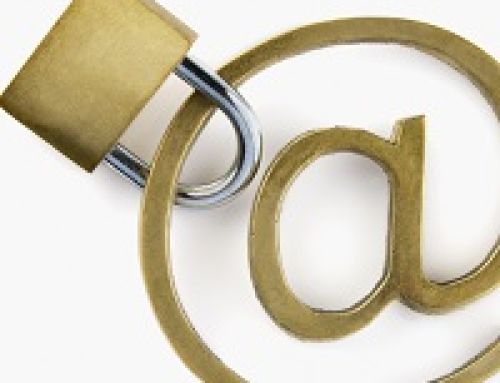Cija Black Interview – Modern Love: The Grownup’s Guide to Relationships & Online Dating
“Modern Love: The Grownup’s Guide to Relationships & Online Dating”
Jasbina Ahluwalia interviews Cija Black
Dating and relationship expert Cija (kee-yah) Black is a writer, blogger, speaker, webinar presenter and coach dedicated to helping people sort their relationship baggage, and find real love both on and offline.
After years using personal ads in newspapers and online dating sites, she found herself peppered with questions from her friends and family about internet dating. Among the frequent questions were: “Aren’t you scared?”, “How do you write a profile, what do you say?”, “Isn’t that only for people in their 20′s?”
Finally she decided to write her experience of love and online dating in Modern Love: The Grownup’s Guide to Relationships & Online Dating. The book contains a system for sorting your relationship baggage and creating a safe, healthy path towards adventure, fun and fulfilling love.
She attended UC Santa Cruz, and received her Bachelor’s degree in Conceptual Design from San Francisco State University.
_____
(00:46): Hello everyone and welcome to Intersections Match’s Talk Radio, a monthly holistic lifestyle show focused on the continual evolution into the best versions of our authentic selves. We and our guests discuss relationships and health and wellness, each of which contributes to meaningful and fulfilling lives.
This is Jasbina, your host. I’m a former practicing lawyer and the Founder of Intersections Match, the only elite national personalized matchmaking company focused on singles of South Asian descent nationwide in the US.
As a dating coach and matchmaker, I’m always interested in fresh perspectives from authors, researchers and experts to help me provide unparalleled service to our clients.
I’m very excited to welcome writer Cija Black to our show today. On today’s show, we’ll be discussing Cija’s book, Modern Love: The Grownup’s Guide to Relationships and Online Dating. Welcome to the show, Cija.
Cija Black
(1:34): Thank you so much for having me.
(1:37): It’s a pleasure to have you on. What led you to write this book?
Cija Black
(1:44): First, it was just practical. I’ve always done online dating personally. When I told people, they were very interested in it. They were also scared of it. I thought, “I didn’t find it to be a scary process.” I thought I could help people with that and make it much more enjoyable and not so intimidating. That produced a book.
(2:07): It was from your personal experiences. I can see that it runs throughout your book, which is excellent. In your book, you mention taking charge of your love life. What are your thoughts in terms of how one can do that?
Cija Black
(2:26): I think the first piece is people being aware that they can. I think society says this to us. You get sucked into the undertow of love as opposed to realizing that you have some control over that.
You can be part of the process of deciding what you want in a relationship and in a partner, not just letting the fates drop it on you. It’s not to say that there isn’t some magic involved in it. But I think that you can direct the path a little bit more than people give themselves credit for. That really helps them to set that stage for thinking, “What do I want? What is my focus?”
(3:14): That’s such an empowered way of living. You have a choice, and you’re recognizing that there are choices.
What are some indicators for someone who is wondering if they’re ready to date? Are there any indicators that someone might not be ready to date? Maybe it’s not the right time to make those choices.
Cija Black
(3:45): If you’re still blaming your ex or hung up on past situations that haven’t worked, if you feel like your potential dating pool is full of predators or sharks or if you see it as an adversarial situation, these things might a good indication that you might want to take a little time to heal.
Get a sense of what you want. See it as a situation that you want to invite into your life. Then you’re not afraid of it. You’re not still tender from a relationship that didn’t work. You want to make sure that you’re ready to jump into dating with the approach that you’re excited about it. You’re excited to meet new people. You’re excited to let new people know you.
A lot of people do it because they feel that’s just what they’re supposed to do. That’s their obligation. Don’t be single. That’s the worst thing in the world. They think, “I should dive right back in. That’s the way to solve a broken heart.” It’s not. You’re going to drag that baggage with you.
(4:52): I think you make a great point. It’s universally important. A lot of people feel pressure, over the holidays especially, whether it’s meeting the relatives or other people you don’t see day to day.
Sometimes singles feel confronted with everyone asking about their love life. If one is nursing wounds from a past relationship, some feelings can be exaggerated during the holidays. You’re making the decision for yourself that the timing may not be right for you. That’s okay. Don’t succumb to pressures, which I know can be easier said than done.
Let’s talk about people re-entering the dating pool. They’ve healed. They feel ready. They feel enthusiastic about meeting someone. What do you consider the first step that someone should take when they’re in that frame of mind and re-entering the dating pool?
Cija Black
(6:15): I think they should be ready to have that focus. What is it that they’re really looking for? What has worked in their past relationships? What hasn’t worked? Make sure that, if you’re participating in online dating or however you’re doing it, that you have some sort of a framework that you’re using. I’m not saying that you need to have this rigid list of things.
It helps to have some guideposts for what it is that you’re looking for. What do you want in your life? Where is your life personally without anyone else in it? Are you happy with where you’re at? How do you invite someone in who will enhance that and make it even better? You’re not basing your idea of going into dating as, “They’re going to solve everything. I’m going to meet Mr. or Ms. Perfect and they’re going to make everything right for me. Then my life will fall into place. Then everything will be okay.”
If you’re waiting for that person to make everything right for you, you’re putting a lot of pressure on some magical person that you may or may not locate. You need to have a sense of what that is for yourself and who you are before you step out there and start dating. You’re not going to recognize what it is you’re looking for until you have that framework.
(7:39): I think that’s really helpful. Can you give an example of the framework or a guidepost? It could be a hypothetical person or from your own personal experiences.
Cija Black
(7:56): I was married before. I was with my first husband for 10 years. One of the big things that was missing for me was having someone who was willing to communicate. I think that goes for a lot of people. I realized it wasn’t just a “nice to have.” It was critical for me because of the way that I communicate. It was one of those things that I needed to put in the forefront when I started dating again.
There could be other things that weren’t quite as necessary for me. That was one of those absolutes. That’s one of the basic things that allows you to have flexibility in a relationship and not have a rigid list. You don’t want to say, “They need to have this type of job. They need to make this much money. They need to have brown eyes.” You have to loosen up on those things.
There are things like communication and the way that you see the world in general that are critical. For me, it was that communication part. It was someone who was interested in learning and growing as a person as well as embracing that in me so that they weren’t seeing that as some sort of threat. If I wanted to grow or change, they see it as part of the flow of the relationship as opposed to a threat to the balance of the relationship.
I looked for those sorts of things that helped to create a flexible relationship. They are things that allow the relationship to grow. It’s going to be a little different for everyone. Hopefully, the “needs” in their life are things that will allow for flexibility and growth. Everyone has a different path for what they want in a relationship. For relationships to be successful and really last, those are some of the cornerstones that they need to look for.
They don’t want people who are always saying no, don’t want to try new things and aren’t interested in having conversations. To me, that would be a very closed relationship. Hopefully, they are looking for something to broaden their lives and share that and grow together.
(10:13): I think you hit on something. There has to be an alignment for life goals and core values, whether you value a certain level of communication or growth. Are there any types of people that you shouldn’t date and steer clear of?
Cija Black
(10:44): There are some categories. I’ve definitely been guilty of being attracted to these kinds of people in the past. A lot of times, it feels like you’re helping them. Those are the wounded birds. They are the people who need help. They are always reaching outside of themselves for someone to help them. Women often want to fix the guy. They want to say, “He’s had a hard life. I can help him see something better.” I’ve done that personally.
There are the bad boys and bad girls. They’re living on the edge and having a little too much fun. They’re very charismatic. It’s fun when you’re young. It’s not so fun when you’re trying to have a long-term relationship.
There are the drama queens. Even if nothing is going on, they have the ability to stir up chaos and drama. They will bring it with them. They will start it up. They might be fun because there’s never a dull moment but there is always something stressful going on. That’s not where you want to put your energy if you’re trying to have a substantial relationship. You’re always busy putting out the fires and worrying about the drama. You’re not really getting to the meat of an actual relationship.
There are the users. They think, “What can you do for me?” They need money. They need a ride somewhere. They need something. It’s always about what they can get out of you. It might even be emotional. They might be an emotional vampire. They’re looking for someone to fix their stuff or someone to put their problems onto.
They’re any of those people who have so much chaos going on in their lives that they’re taking away from your ability to have a real relationship. Those are people to stay very far away from. They can be entertaining in the short term. I will admit it. If you’re looking to have a real relationship, it makes it almost impossible to reallocate those emotional resources into an area where you can have a real relationship. You want to support each other and participate in the relationship.
(13:13): Let’s switch gears and talk about online dating. You mentioned that you did it and people would come to you for tips. What is it that appeals to you about online dating? What do you like about it? Why did you choose to do it? Why do you recommend it?
Cija Black
(13:38): I started doing personal ads when I was in college. Then I evolved with it as it evolved into online dating. On and off, I would be in and out of relationships. I always gravitated towards that. I’m a bit of a dating nerd. It’s nice to be able to look at profiles and get a sense of what’s out there. I would think, “What is it that I’m looking for and not looking for?”
As you look at a lot of profiles, you start to see those patterns. You might think, “That’s something that I want to stay away from.” Or “I want a little bit more of that.” For me, it’s always been helpful to be able to see things in that way. You, hopefully, know that people are single and they’re not lying about their status. It’s about knowing that at least people are looking for a relationship if they’re on a dating site.
How do you interact with these people? It’s a way to flirt a little. You can dip your toe in as little or as much as you want to depending on how you want to approach it. I’m an Aries. I tend to dive into whatever I do. I would get pretty aggressive about dating. I went on 25 plus dates in about six weeks. I really got into it. For me, with the repetition of it, it became clear to me what I was and wasn’t looking for.
It was a lot easier for me to start tuning my experiences into what I was looking for when I did that. I do not recommend that for everyone. I think there are some really great points to doing online dating. It’s a faucet for women. You can turn it on or off. You can date if you want to or not date. It’s a little bit different for men. I know they just don’t get the same kind of response that women do. For me, it has worked. I do recommend it for people if they want to try it out.
(15:48): They are all compelling reasons. In terms of taking charge of your love life, it’s a great avenue to be able to do that. Based on your experiences, do you feel that online dating is for everyone? Are there any exceptions?
Cija Black
(16:17): I think it’s a good option for a lot of people. However, there are some people who find that, in their life, people step on them and take advantage of them. If they are easily duped, I don’t recommend it. I also don’t recommend it for people who haven’t really thought about what they’re looking for. Those are the people where we read those horrible stories about.
Someone is taken advantage of financially. It’s very easy to get sucked into those online romances if you’re not a little cautious or willing to step back. When someone is schmoozing you and telling you all these wonderful things, you want to say, “Wait a minute. That seems a little sudden. I haven’t even met you in person.” You have to be willing to have a little bit of skepticism. You can’t be completely skeptical of the process but you need to have a healthy dose of it.
If you’re overly trusting, I don’t think it’s right for you. People like that need to protect themselves to some degree. It can be a dangerous process for people like that. There are predators, unfortunately. You have to know when to say no. You have to set your boundaries and know your standards. Never, under any circumstances, give money to people online. That still shocks me when people do that. If nothing else, it’s good for testing out a profile and safely checking things out, as long as you’re willing to hold back on giving money or making big promises.
(18:05): I completely agree in terms of those precautions. Someone who is having difficulty with boundaries in online dating will find that pretty much every other avenue can be challenging. It’s worth investing in figuring out your boundaries when you’re looking for a sustainable, serious relationship. Earlier, you mentioned relationship baggage. What do you mean by that?
Cija Black
(18:46): Relationship baggage is the stuff that we collect in our lives along the way as we’re learning about what relationships are. It’s how we see our parents behave towards each other. It’s the things that we see in movies and hear in songs. It’s also the things that we experience ourselves about relationships.
As we go along, we collect these things. We say, “That’s what love is.” We see Pretty in Pink. We think, “Okay, that’s what love looks like. There are great, grand gestures.” We see that our parents were not really demonstrative about their affection. It’s those things that we gather up and internalize. In turn, we use those in our own love lives.
Often, we collect these things and they can be a detriment to us finding love because we’ve created these rules or scenarios about relationships. It turns out that they’re causing us problems. All of that stuff is the baggage. It’s a matter of how we use it and if we’re aware of it.
(20:01): It’s about awareness. Maybe someone knows that they have some relationship baggage but they’re not quite clear on what it is. It’s hard for them to pinpoint and identify it. How do you help someone identify their baggage?
Cija Black
(20:30): You want to look at how your relationships up to this point have played out. You might have certain problems that keep happening. Maybe you’re with someone who is not communicating well. You get jealous. You don’t stand up for yourself. Maybe when you get into an argument, you get really passionate about it. You start to think about where it comes from.
You think, “Why do I do that?” You start to give some thought to behaviors that you have or maybe people who you invite into your life who aren’t really getting you where you want to be. I think that’s the first place to start. It’s such a wide open thing. It’s hard to know until you talk to someone and say, “What’s worked in your relationships and what hasn’t?” I think that’s a way to start to pinpoint them, dig through and see what’s going on.
(21:30): You want to look at your relationship and dating history. Like you said, it’s not only romantic relationships. Once you’ve raised awareness as to your baggage, what do you do with it once you find it?
Cija Black
(21:55): Once you find it, you have to decide if it’s doing you any good. There may be some things in there that aren’t damaging. You also have to think, “Is this getting me where I want to go? Is this helping me have the kinds of relationships that I really want to have?” I know people who say, “I want a relationship where I really communicate well and we have these great intellectual chats. We travel internationally.”
Then you look at the profile they wrote, and it’s written for someone who wants to party. Sometimes people don’t realize what they’re doing. Maybe they don’t feel like they’re worthy to have the thing that they really want, and so they compromise by putting something very different in their profile. You want to be aware of how these things are causing you problems and not helping you out. That is the best use of identifying that baggage and figuring out, “Where do I go from here? This hasn’t been working. How do I make this work? What do I tweak a little bit so that I can find what I’m really looking for?”
(23:09): That’s very helpful. What are your top three tips for singles? They could be for men, women or both.
Cija Black
(23:28): The first thing is to have fun. There are a lot of people that see dating as this horrible job that they have to do. Enjoy the process. It should be something fun and exciting to meet new people. Even when you go out on a date with someone and it doesn’t work out, it’s not a waste of time. It helps you get a better sense of what you do and don’t want. It allows you to meet new people.
Realize that you’re in control of this process. It’s not something that just happens to you or that love graces you with its presence. There are things that you can do to help that process along. You’re in control of what comes into your life far more than you think.
(24:20): I love the empowering nature of that advice. I really appreciate you sharing your insights with us, Cija. Is there any last thought or take-home message that you’d like to leave our listeners with?
Cija Black
(24:35): Be excited to meet new people. Invite new people and experiences into your life. I think we live in a society now where people are so fearful of letting people in and connecting. Enjoy that process. It’s one of those great gifts of being human. Better yet if we connect with a human that we want to stay wit for a long time. Enjoy it. It should be a fun, exciting process and not something to be dreaded.
(25:07): If someone chooses to have the mindset of having fun with it, that leaks in a positive way. If someone treats it more like a “have to do,” it’s different. Cija, if people want to check out your book and learn more, what’s the best way for them to do that?
Cija Black
(25:39): They can visit my website at ModernLoveGuide.com. They can access my book. I have an online self-paced video class. My husband and I do a weekly podcast as well. We are encouraging people with long-term relationships. They can get to us any of those ways and find out more information.
(26:07): That’s wonderful. Thank you so much, Cija. It’s been a pleasure.
Cija Black
(26:10): Thank you.
(26:14): In case you joined us late or would like to share this show with people in your life, I’d like to remind you that today’s radio show will be archived and available as a podcast on Intersections Match’s website, which is www.IntersectionsMatch.com.
I appreciate you hanging out with us. Make sure to join us for next month’s show. Take care everyone.
_____
What do you think?
Would you like to add to the insights shared in the Cija Black Interview? Share your thoughts in the comments below.
_____





